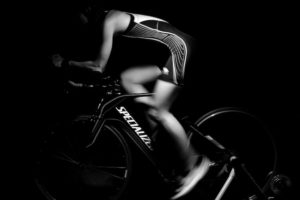Overtraining is a very common problem that affects many athletes, but it can also happen to regular gym goers like many of us. It occurs when you train too much, too often without giving your body enough time to rest and recover.
The symptoms of overtraining are the same as those of chronic fatigue syndrome or burnout – you may feel exhausted all the time, have frequent muscle soreness, a drop in performance in workouts even if they’re shorter, experience hair loss and reduced sex drive among other things.
You’ll be more prone to getting sick since your immune system becomes weaker under the pressure of overtraining. Overtraining will also cause your muscles to become smaller, meaning you’ll have less strength and stamina when it comes to doing intense exercise or sport-specific activities.
It’s important not to let this happen because once your body enters into overtraining mode it will take longer for you to recover from injuries and illness.
How To Recognize It:
You know you’re overtrained when your performance in the gym starts to go down, or if you feel lethargic and tired all day. Muscle soreness may be present too because of muscle breakdown from lack of rest. You can also experience mood swings like irritability and impatience or even depression as a result of hormonal changes caused by cumulative damage on body tissues during chronic periods without recovery time.
Many will deny the signs and symptoms of overtraining. Like myself, when I feel tired and sore, I still workout. Which is not the way to do it!
How You To Prevent It:
The first and most important prevention for overtraining, is learning how to recognize it. By recognizing it early, you can avoid it and not make the condition worse. The more your overtrained, the harder to recover you will be
Overtraining prevention starts with a good training plan that’s tailored to your needs, and progresses as you get fitter over time. There are many ways to prevent overtraining including: taking care of yourself outside the gym, listening to your body (and giving it enough daily rest), switching up your routine every once in a while, and eating well-balanced meals on a regular schedule so that you don’t go into a catabolic state where your muscles break down faster than they should be rebuilt from exercise stress.
Ways To Recover:
The first step is to stop training for a few days (or weeks)
This may be the best option, especially if you have experienced severe symptoms for a long time. On the other hand, athletes that experience mild to moderate symptoms are often able to maintain training levels by reducing their intensity by 50-80%.
Drink plenty of water and eat high-quality protein
According to experts in recent studies, drinking plenty of water will help with your energy supply, electrolyte replacement, prevention of dehydration, pre and post-exercise hydration to improve sports performance and minimize fatigue.
Consuming high-quality protein will help restore muscle and immune system function after exercise by increasing the release of building blocks and amino acids for muscle repair and immune system support.
Get enough sleep each night so that your body can heal properly
I’m sure you know what it’s like when you don’t get enough sleep. When we sleep, our body will produce growth hormones. Growth hormones help build tissue, cartilage, and bone.
Sleep loss affects the way our body responds physiologically. According to Dr. Fullagar, sleep loss can create autonomic nervous system imbalance which simulates the symptoms of the overtraining syndrome.
Use relaxation techniques such as meditation or yoga to reduce stress levels
Mental health and stress are among the most common symptoms that motivate individuals to seek treatment with alternative therapies such as yoga. Yoga, a common form of exercise, encourages relaxation and deep breathing to improve mental health. Yoga also improves symptoms associated with the sympathetic nervous system response while.
So, if you want to have a healthier body and stronger muscles that can handle intense exercise or sport-specific activities, don’t overtrain. It will only take longer for your body to recover from injuries and illness while making it more likely you’ll get sick in the process
Citations:
Orrù, Stefania et al. “Role of Functional Beverages on Sports Performance and Recovery.” Nutrients vol. 10,10 1470. 10 Oct. 2018, doi:10.3390/nu10101470
Fullagar HH, Skorski S, Duffield R, Hammes D, Coutts AJ, Meyer T. Sleep and athletic performance: the effects of sleep loss on exercise performance, and physiological and cognitive responses to exercise. Sports Med. 2015 Feb;45(2):161-86. doi: 10.1007/s40279-014-0260-0. PMID: 25315456.
Woodyard, Catherine. “Exploring the therapeutic effects of yoga and its ability to increase quality of life.” International journal of yoga vol. 4,2 (2011): 49-54. doi:10.4103/0973-6131.85485







